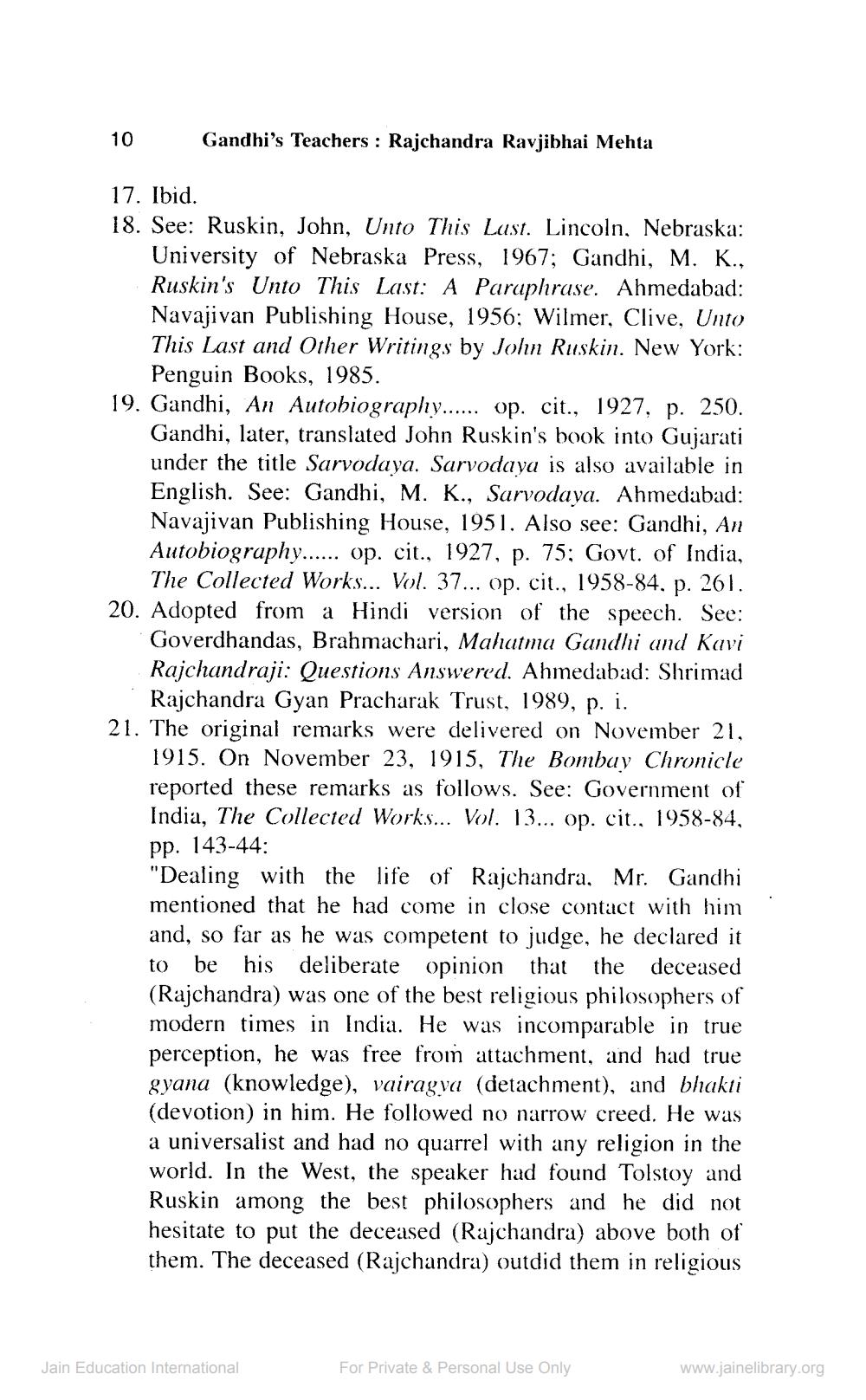________________
10
Gandhi's Teachers : Rajchandra Ravjibhai Mehta
17. Ibid. 18. See: Ruskin, John, Unto This Lust. Lincoln, Nebraska:
University of Nebraska Press, 1967; Gandhi, M. K., Ruskin's Unto This Last: A Paruphrase. Ahmedabad: Navajivan Publishing House, 1956; Wilmer, Clive, Unto This Last and Other Writings by John Ruskin. New York:
Penguin Books, 1985. 19. Gandhi, An Autobiography...... op. cit., 1927, p. 250.
Gandhi, later, translated John Ruskin's book into Gujarati under the title Sarvodaya. Sarvodaya is also available in English. See: Gandhi, M. K., Sarvodaya. Ahmedabad: Navajivan Publishing House, 1951. Also see: Gandhi, An Autobiography...... op. cit., 1927, p. 75; Govt. of India,
The Collected Works... Vol. 37... op. cit., 1958-84. p. 261. 20. Adopted from a Hindi version of the speech. See:
Goverdhandas, Brahmachari, Mahatma Gandhi and Kavi Rajchandraji: Questions Answered. Ahmedabad: Shrimad
Rajchandra Gyan Pracharak Trust, 1989, p. i. 21. The original remarks were delivered on November 21,
1915. On November 23, 1915, The Bombay Chronicle reported these remarks as follows. See: Government of India, The Collected Works... Vol. 13... op. cit., 1958-84, pp. 143-44: "Dealing with the life of Rajchandra, Mr. Gandhi mentioned that he had come in close contact with him and, so far as he was competent to judge, he declared it to be his deliberate opinion that the deceased (Rajchandra) was one of the best religious philosophers of modern times in India. He was incomparable in true perception, he was free from attachment, and had true gyana (knowledge), vairagva (detachment), and bhakti (devotion) in him. He followed no narrow creed. He was a universalist and had no quarrel with any religion in the world. In the West, the speaker had found Tolstoy and Ruskin among the best philosophers and he did not hesitate to put the deceased (Rajchandra) above both of them. The deceased (Rajchandra) outdid them in religious
Jain Education International
For Private & Personal Use Only
www.jainelibrary.org




